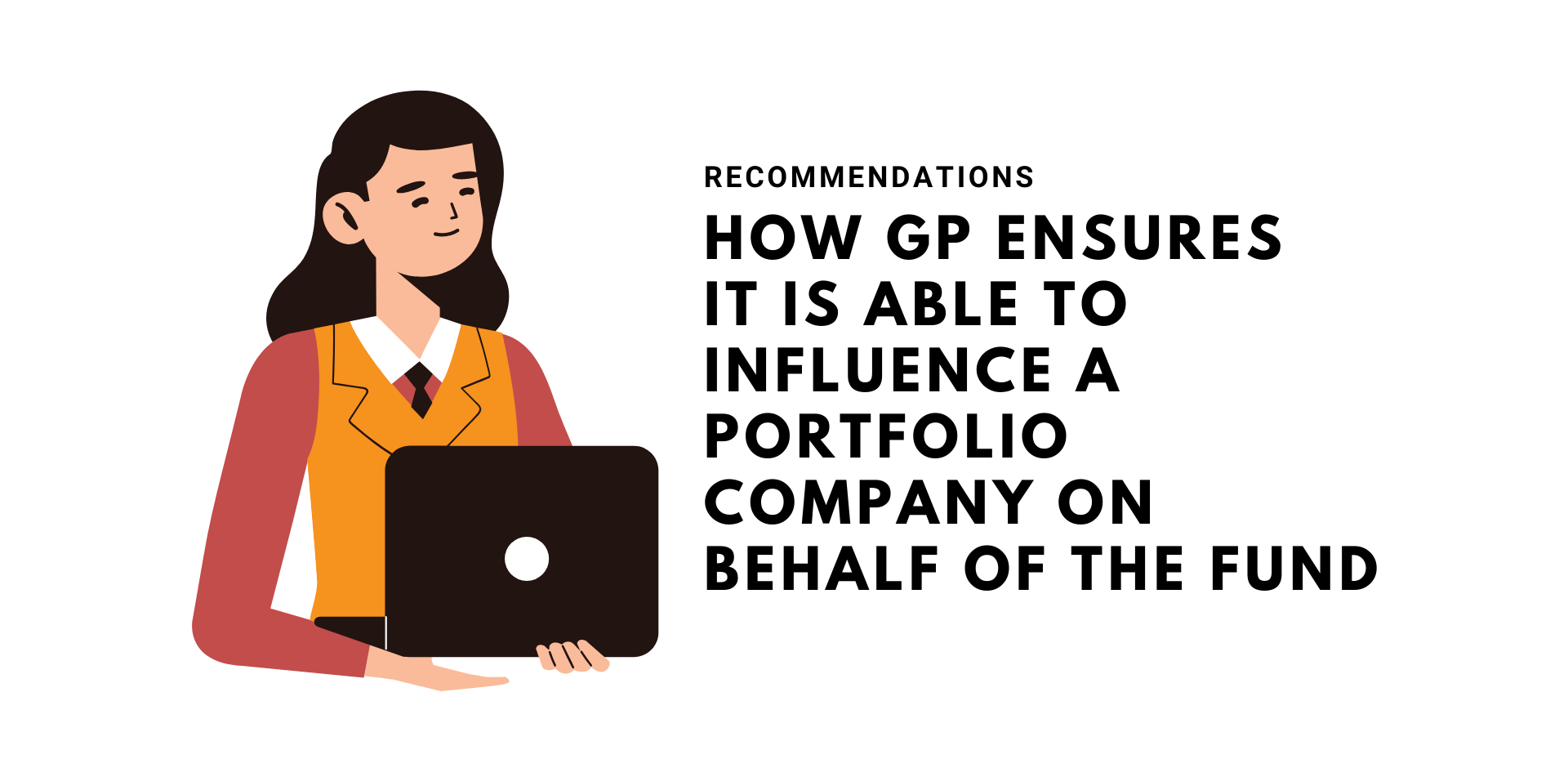How GP Ensures It Is Able to Influence a Portfolio Company on Behalf of the Fund

Explanation
There are a number of different ways in which GP can ensure that the fund can influence a portfolio company. Which is appropriate will depend on a number of factors (including the size of the Fund's investment and the degree of influence that GP considers appropriate).
If the Fund holds a controlling interest in the portfolio company, it has the ability under company law to determine the outcome of matters that are reserved to shareholders.
The GP may also seek to set out certain additional rights in the portfolio company's constitutional documents and agree contractual rights in the Investment Agreement it enters into with the portfolio company's shareholders, such as:
1. The requirement that certain strategic and material operational matters be subject to the prior approval of investors/shareholders.
In some jurisdictions, it is common practise in the Investment Agreement between the Fund and the Portfolio Company for certain actions of the Portfolio Company to be subject to the prior consent of GP on behalf of the fund in its capacity as a shareholder. These are commonly referred to as "investor consents".
Where GP has appointed individuals to the Portfolio Company's decision-making body, their consent may also be required before certain actions can be taken by the Portfolio Company, although they are often required to act in the best interests of the Portfolio Company and not the Fund. The availability and extent of investor consents deemed appropriate will vary depending on the size and nature of the Fund's investment.
2. The ability to make board appointments.
The GP will generally consider appointments:
- Appointments to the board of directors or other decision-making bodies of the portfolio company;
- Appointments of individuals to internal committees of the portfolio company (e.g. advisory committees, remuneration committees or audit committees, as relevant). It is important to note that individuals appointed to the board of the portfolio company by GP may be accountable both to GP, who made their appointment, and to the portfolio company and all of its shareholders as a director (as well as, in certain circumstances, to the company's creditors). Generally, as directors of the Portfolio Company, these individuals have a duty to act in the best interests of the Portfolio Company. The interests of the Portfolio Company may conflict with those of the Fund and in such circumstances the Director must act in accordance with the relevant legal requirements applicable to Directors with conflicts of interest (which may be determined in part by the Articles or Memorandum of Association of the Company) and in accordance with the duties owed to the Portfolio Company.
Recommendation
With respect to investor consent, GP should consider requiring the Portfolio Company to obtain investor consent on governance, corporate, financial, accounting, business and other significant matters. The list of matters will depend on the jurisdiction, the size of the investment, the nature of the company and the interest held, but the following should be considered:
- Material developments in the business (e.g., investments, new issuances of capital, acquisitions or dispositions of significant businesses, divisions or assets, including real estate, changes to the portfolio company's charter);
- Major outsourcing contracts;
- Changes in capital structure and borrowings
- Changes in leases or other material contracts;
- Material litigation claims;
- Changes in control, acquisition or disposal of shares by other shareholders;
- Adoption of the Portfolio Company's audited financial statements;
- The making of dividends or distributions;
- Adoption of a new business plan;
- Changes in the Portfolio Company's management or their compensation;
- Adoption of, or changes to, communications policies.
- Developments in the financial or other performance criteria of the portfolio company that materially change the nature of the business in which the Fund has invested;
- The winding up or dissolution of the Portfolio Company;
- Any transactions between the Portfolio Company and the Shareholder, the Portfolio Company's management or other related parties;
- Any ESG issue that could materially affect the investment or the risk profile of the investment.
While investor consents must be comprehensive, they must not be so broad as to limit the management team's ability to manage the portfolio company or take up an excessive amount of GP time. The list is not exhaustive; rather, it provides an indication of some typical matters subject to investor approval.
In weighing the benefits to the fund of acquiring control rights, the GP should also consider potential liabilities or legal restrictions on those exercising certain types of control.





